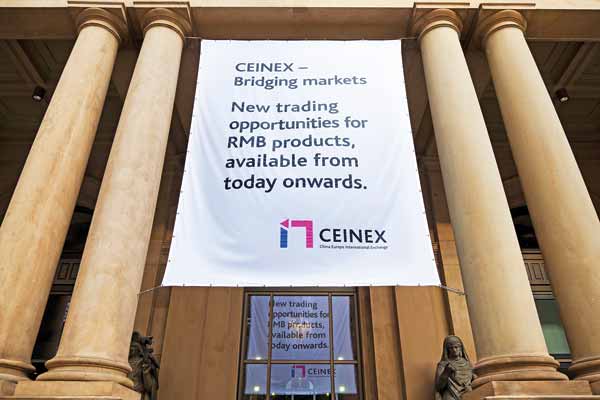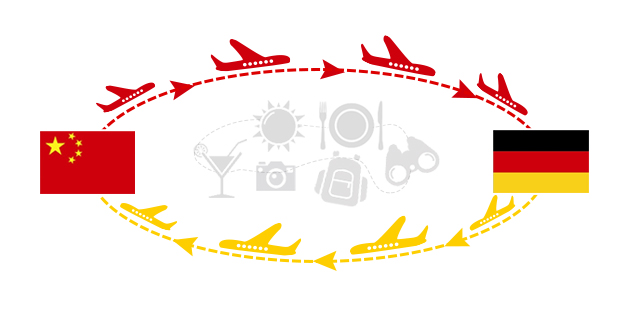New share market aimed at helping Europe invest in growth
 |
|
CEINEX is seen by some experts as a trial for the wider integration of the world's markets. The entity came into existence in November 2015. [Photo/Provided to China Daily] |
Frankfurt-based China Europe International Exchange (also known as CEINEX) is preparing for the launch of a share market aimed at pulling funds from European investors to support the overseas expansion of Chinese companies.
The so-called D-share market will help European investors buy into Chinese companies' fast growth, something that became increasingly attractive after MSCI, the US stock index provider, announced its decision to include China’s A-shares in its emerging markets index in June.
"In the future, European investors can participate in the D-share market in a way they are more familiar with, and get easy access to Chinese companies' fast growth," said Chen Han, co-CEO of CEINEX.
Chen told China Daily on Monday that the D-share market’s success will be a collaboration between the "Made in China 2025" and "Industry 4.0" strategies.
Companies that will be listed on the D-share market index will be blue-chip advanced manufacturing Chinese businesses with international expansion strategies. The move will contribute toward the global development of manufacturing technologies and aid China’s efforts to climb up the value chain.
Meanwhile, the D-share market’s strict adherence to European stock exchange regulations will reassure investors about the reliability and transparency of information.
The timeline of the launch is yet to be announced.
CEINEX is a joint venture between Deutsche Borse, the Shanghai Stock Exchange, and the China Financial Futures Exchange, and was established in 2015 with support from the governments of both China and Germany.
Currently, it lists 85 bonds and 16 exchange-traded products, all of which include underlying China-related assets. These products give investors valuable exposure to China’s vast capital market opportunities.
In more recent years, the Chinese government has taken steps to increase foreign investors’ access to both its stock and bond markets, and the establishment of CEINEX is part of this effort.
Shi Shiwei, director of the research center for Europe at Beijing's University of International Business and Economics, said CEINEX plays an important role in facilitating the integration between the Chinese and international financial markets, and is "a trial for wider integration".
CEINEX is also looking to add new cash market products to meet European investors' need for diversified products and add derivatives to help European investors' risk management strategies, when two-way cross-border capital flows become more fluid in the future.
Some of the products traded on CEINEX are denominated in renminbi. Their popularity reflects growing international investor appetite for renminbi-denominated products, especially since the renminbi has joined the International Monetary Fund’s basket of currencies with special drawing rights.
In January, the Frankfurt-based European Central Bank announced its investment of 500 million euros ($568 million) of reserves into renminbi-denominated assets, signifying the growing recognition of the renminbi as a reserve currency.
Meanwhile, the potential for additional foreign investment in China's capital markets is huge. China’s $7 trillion interbank bond market is the third-biggest in the world, but foreign ownership is less than 2 percent. MSCI forecasts an additional inflow of between $17 billion and $18 billion in foreign capital into China's A-share market as a result of its index inclusion.









